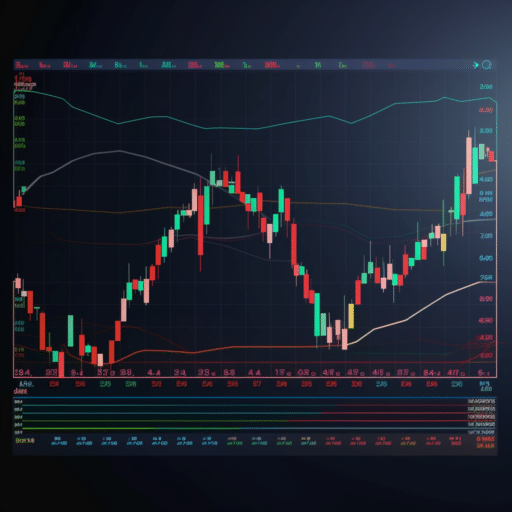The best Infrastructure stocks are widely regarded as good investment options because of their inherent stability and predictable growth patterns.
Electricity, water, freight, people, and data are just some of the resources that may be transported and stored more easily with the help of existing infrastructure.
Because it provides the material basis for economic activity around the world, maintaining the world’s infrastructure is critical to the economy’s long-term health and growth.

Building and maintaining infrastructure is a costly endeavour. The cost of updating the United States’s infrastructure is estimated to be around $2.6 trillion by the year 2030.
A $1.2 trillion infrastructure bill was passed by Congress in 2021, marking a major milestone for the United States.
The Act covered budgetary allotments for improving infrastructure like roads and bridges, as well as transit hubs like airports and ports.
Increased investment in infrastructure is needed around the world.
Swiss Re estimates that the total amount of money that will need to be spent on fixing up and expanding the world’s infrastructure from now until 2040 is more than $80 trillion.
Because of budgetary limits, governments can’t afford to cover all of these costs on their own, so they’re increasingly working with the private sector.
The ability to own, manage, build, maintain, and improve infrastructure systems is a key competency for infrastructure companies.
If you want to invest as an expat or high-net-worth individual, which is what i specialize in, you can email me (advice@adamfayed.com) or use WhatsApp (+44-7393-450-837).
Nothing written here is financial advice.
We don’t advise holding individual stocks. ETFs and funds are a better option.
This article merely looks at some of the better options.
What are Infrastructure Stocks
Infrastructure stocks are shares issued by publicly traded companies that are involved in the funding, development, and execution of infrastructure projects and expenditures.
These companies can be found on the stock market. These businesses focus the majority of their efforts on the design, construction, and maintenance of critical infrastructure, which includes things like telecommunications systems, roads, utilities, railroads, bridges, and airports.
Because both public and private entities are ramping up their efforts to invest in and build infrastructure, there is a chance that infrastructure stocks will experience favourable results as a result of this trend.
Companies engaged in the production of construction machinery, industrial gas turbines, and natural gas engines are examples of these types of infrastructure companies.
These machines are all utilized in large construction projects. In addition to their principal activities, which entail the building of infrastructure, companies operating in this sector are also involved in the manufacturing of metals, construction aggregates, and a variety of other raw materials.
Analysts believe that the future of infrastructure equities will be bright, and they attribute this optimistic perspective to the anticipated growth in government investment in infrastructure brought about by projects such as the Jobs Act, which was proposed by the Biden Administration.
The improvement of transportation systems, data infrastructure, solar farms, water systems, high-speed internet, and building construction are some of the principal areas that are targeted by investments.
Infrastructure stock investing gives investors exposure to the global infrastructure development sector, which includes a large number of government buyers and construction projects.
By investing in infrastructure ETFs, investors have the option to obtain exposure to a diverse selection of infrastructure firms.
The best infrastructure ETFs offer diversified exposure to the growing sector, making them a solid choice for long-term investors.
Types of Infrastructure
Commodity Infrastructure
Oil, water, refined petroleum products, natural gas, and electricity are just some of the commodities that rely on these intangible resources for their creation, transportation, processing, and storage.
Transportation Infrastructure
To move people and products from one point to another, we rely on a network of physical facilities known as “transportation infrastructure.” This includes a wide range of infrastructures, from air and rail terminals to toll roads and seaports.
Data Infrastructure
Information storage and transmission facilities, such as data centres and transmission towers, are examples of physical network components.
Benefits of Investing in Infrastructure Stocks
Infrastructure stocks are often recognized for their comparatively low volatility about other prominent sectors.
This may be attributed to their consistent cash flow over the long term and their straightforward business strategies that adhere to the principle of not fixing something that is not broken.
Infrastructure firms are old and with substantial financial resources.
Except for the relatively recent entrant, ChargePoint, infrastructure corporations typically resemble institutions rather than conventional businesses, boasting over a century of operational expertise and substantial financial reserves in the billions.
Infrastructure projects have yet to commence, but, these companies are already witnessing remarkable sales growth, even a year before to the initiation of $1.2 trillion in government expenditure scheduled for late 2023.
Risks of Investing in Infrastructure Stocks
Regulatory obstacles have the potential to impede the performance of share prices. The implementation of the White House’s “Made in America” policy has the potential to boost sales.
However, it is important to note that the Environmental Protection Agency (EPA) maintains a watchful stance and has the authority to appropriately impede expansion endeavours, particularly in the mining and forestry sectors.
Geopolitical factors introduce uncertainties, such as the existence of a real estate bubble in China, the ongoing conflict in Ukraine, and various other global trends, which have the potential to influence the values of infrastructure stocks and result in short-term volatility.
The concept of demand possesses both positive and negative implications. A 40% increase in sales from one year to another may result in a decline in share values if investors had anticipated a higher growth rate of 60%.
It is advisable to monitor the CEOs who may potentially engage in overpromising about performance as the year 2023 approaches.
What are the Best Infrastructure Stocks to Buy
Caterpillar (CAT)
It is highly unlikely that humans would cease their construction and excavation activities, as evidenced by their consistent need for Caterpillar equipment for such purposes.
The mustard-coloured construction equipment of the enterprise is ubiquitously observed across many locations, ranging from the construction site of a towering skyscraper to the profound recesses of a quarry.
Hence, it is evident that the substantial gains that the U.S.-based heavy machinery conglomerate will experience as a result of the $1.2 trillion infrastructure legislation are discernible even without the utilization of a quantitative investment fund.
However, individuals who had prior experience with the previous economic downturn may recall that Caterpillar was among the initial fatalities.
The decline in CAT stock experienced a significant decrease of 40% during the latter part of 2008, primarily attributed to a pessimistic perspective regarding forthcoming development initiatives.
A similar occurrence took place once again during the onset of the COVID-19 pandemic, and once again in the third quarter of 2021, prompted by concerns that Evergrande, the largest real estate company in China, was nearing a state of default.
The shares of CAT exhibit a consistent pattern of rebounding within a timeframe of six to 12 months.
The cyclical structure of Caterpillar’s operations appears to support the perspective of long-term investors who acknowledge the persistent inclination of humans to engage in excavation activities.
With the recent signing of the $1.2 trillion infrastructure package, an increasing number of contracts from emerging countries, and a resurgence in global mining activities, several noteworthy developments have taken place.
According to analysts, it is projected that Caterpillar’s revenue will experience a twofold increase by the year 2026.
Private banking services can help high-net-worth individuals strategically invest in the best infrastructure stocks to optimize their portfolios.
Vulcan Materials (VMC)
In the absence of a distinctive mesh green cap or recognizable yellow equipment to promote brand recognition, Vulcan may require some elucidation.
In contrast to the nostalgic perception of selling tractors and backhoes that embody childhood aspirations, the company mostly offers products that have been categorized by the Association of Equipment Manufacturers as lacking appeal and glamour.

One crucial category of construction materials is referred to as “aggregates,” encompassing important components such as sand, gravel, and crushed stone.
Construction aggregates, although considered mundane, have played a crucial role in providing the fundamental basis for construction projects, with their usage dating back to the era of the Roman Empire.
Presently, Vulcan Materials Company, often known as VMC, holds the distinction of being the largest manufacturer of construction aggregates in the United States.
Its operations span throughout 20 states, including the District of Columbia, and encompass some regions of Mexico as well.
Notwithstanding a product portfolio that has remained unchanged for more than two millennia, the company is experiencing an increase in demand from both private and government purchasers as supply chain challenges are being resolved and statewide construction activities restart.
It is important to note that the aforementioned information pertains to the period preceding the commencement of significant infrastructure initiatives.
As an increasing number of corporations are compelled by the government to prioritize purchasing American products, the demand for Vulcan’s sand, gravel, and crushed rock is expected to experience a notable surge.
Essentially, although VMC’s products may lack excitement, their potential profitability is far from mundane.
The current number of hedge funds investing in the company as of Q3 2022 is 39, which represents an increase from the previous quarter’s count of 34. This observation is duly acknowledged by market participants.
Investment funds managed by experienced professionals can provide access to the best infrastructure stocks while spreading risk across various assets.
ChargePoint Holdings (CHPT)
The extensive infrastructure bill proposes the installation of a substantial number of 454,000 new charging stations across the entire nation.
To provide context, the current number of charging stations in the United States is 53,000. The designated figure of 454,000 exceeds three times the current count of gas stations.
However, the ambitious commitments made by the government inevitably raise a fundamental inquiry: which specific private sector entity will be responsible for executing the necessary tasks?
ChargePoint, a California-based firm, has garnered considerable attention due to its remarkable achievements in its specialized endeavour of marketing and implementing Level 2 chargers.
In contrast to the majority of its competitors, ChargePoint refrains from excessive investment in research and development, an excessively intricate revenue plan, or a self-indulgent supercar endeavour.
The company adopts a straightforward approach of consistently installing Level 2 chargers throughout the day, akin to Krispy Kreme’s continuous sale of freshly baked doughnuts.
Due to its straightforward and uncomplicated business strategy, ChargePoint has experienced substantial growth, expanding its operations to encompass 174,000 stations across 14 countries.
Additionally, the company has successfully established strategic alliances with prominent entities like as Starbucks, Volvo, and Goldman Sachs.
In addition, the company’s sustained yearly sales growth ranging from 60% to 100% indicates a strong trajectory towards achieving a positive EBITDA by the year 2024.
Best defensive stocks often include utilities and essential infrastructure companies that provide stability during market downturns.
Deere (DE)
Caterpillar Inc. is not the sole heavy machinery corporation established in the United States that stands to gain from increased investment in infrastructure.
Deere, a prominent tractor manufacturer in the United States known for its iconic green caps, is anticipated to experience a significant surge in sales.
Indeed, Deere has consistently exceeded sales projections even before the successful passage of H.R.3684 in Congress.
In addition to several contributing elements, the escalation in crop prices throughout the pandemic period facilitated the ability of farmers to allocate funds towards the acquisition of enhanced equipment, resulting in a net profit of $2.751 billion in the year 2020.
Upon successfully resolving supply chain challenges and effectively fulfilling customer demand, the company witnessed a notable increase in earnings for the fiscal year 2022, culminating in a total of $7.131 billion by the end of June 2022.
Overall, Deere managed to surpass the aggregate product movement of its two closest competitors.
Deere’s successful performance throughout the pandemic has facilitated substantial investments in AgTech, so contributing to the company’s growth in this sector.
By integrating artificial intelligence (AI) into both its range of products and its sales procedures, Deere is effectively expanding its competitive advantage by offering state-of-the-art equipment at highly competitive pricing.
As a consequence of these factors, Deere emerged as a highly favoured investment throughout the pandemic era, experiencing a threefold increase in share prices compared to their pre-COVID zenith.
Despite seeing significant growth, speculators do not perceive the company as being overvalued. Deere is currently encountering more favourable market conditions than unfavourable ones since there is an increase in infrastructure spending.
The demand for farming, forestry, and construction equipment is universal, and Deere is a prominent provider in all three sectors. Furthermore, it has established dominance in the first of the aforementioned three markets.
Investors seeking stability may find the best consumer staples stocks to be a reliable choice, even in uncertain economic times.
Enbridge (ENB)
Enbridge is a leading energy infrastructure company with a broad portfolio of assets in both the North American and European areas.
The corporation has a long history of increasing dividend payments, with each payment having been increased for the past 25 years. Therefore, it has become a popular option for investors seeking returns.
Throughout North America, energy resources may be transported more easily because of Enbridge’s enormous network of oil and natural gas pipelines.
To keep up with the competition, the corporation has made significant expenditures in its pipeline infrastructure.
Although the company has traditionally focused on the oil and gas industry, it has more recently begun to devote resources to the infrastructure development required by renewable energy projects.
With careful planning, Enbridge has invested heavily in renewable energy sources like wind, solar, and hydro.
By investing in the transition to a low-carbon energy future, Enbridge has positioned itself to take advantage of a growing and attractive market.
Nucor (NUE)
Another key element of the substantial infrastructure package, as well as the overarching Biden administration, pertains to a pronounced focus on the procurement of American goods.
Investors in overseas lithium and steel are reasonably apprehensive due to the consistent implementation of “Made in America” policies.

However, it is important to acknowledge that this issue has two distinct perspectives, and individuals who invest in domestic raw resources possess valid justifications for their optimism.
The prevailing optimism has resulted in a particularly optimistic sentiment towards Nucor.
The firm is based in North Carolina. Nucor Corporation holds the distinction of being the foremost domestic steel producer in the United States, while also serving as the primary entity engaged in the recycling of scrap materials on a significant scale.
The company achieved a production and sales volume of over 20 million tons during the initial nine months of 2022, indicating a growth of almost 10% compared to its whole output in 2019.
Moreover, if you harbour concerns regarding the compatibility of a steel investment with your Environmental, Social, and Governance (ESG) values, it is worth noting that Nucor has just emerged as the inaugural big industrial entity to align itself with the United Nations 24/7 Carbon-Free Energy Global Compact.
Regarding the performance of stocks, the prices of shares experienced a decline after a moderately unsatisfactory earnings call for the third quarter.
However, given the anticipated surge in demand for domestic steel from builders and automakers, it is difficult to envision anything other than a promising outlook for Nucor investors.
Consequently, Nucor has emerged as one of the best infrastructure stocks to monitor closely in the current year.
In a thriving economy, the best consumer discretionary stocks are poised for growth, making them an attractive investment option.
Final Thoughts
Infrastructure stocks are widely regarded as favourable investment options because of their inherent stability and predictable growth patterns.
Infrastructure-related services and goods are of paramount importance and exhibit a relatively lower susceptibility to economic downturns, hence rendering these stocks less prone to volatility compared to other sectors.
The perpetual demand for infrastructure stocks arises from the necessity to maintain, upgrade, and expand current infrastructure, as well as to undertake the development of new infrastructure projects.
The Biden administration has committed to augment infrastructure expenditure, hence enhancing the attractiveness of the sector.
The infrastructure stocks present appealing dividend opportunities, rendering them a favourable choice for investors seeking income.
Government assistance is frequently observed in the infrastructure sector, hence imparting stability and mitigating risk in contrast to other industries.
It is advisable to remain informed about current news and market trends about infrastructure stocks, regardless of one’s chosen course of action.
Pained by financial indecision?

Adam is an internationally recognised author on financial matters with over 830million answer views on Quora, a widely sold book on Amazon, and a contributor on Forbes.



